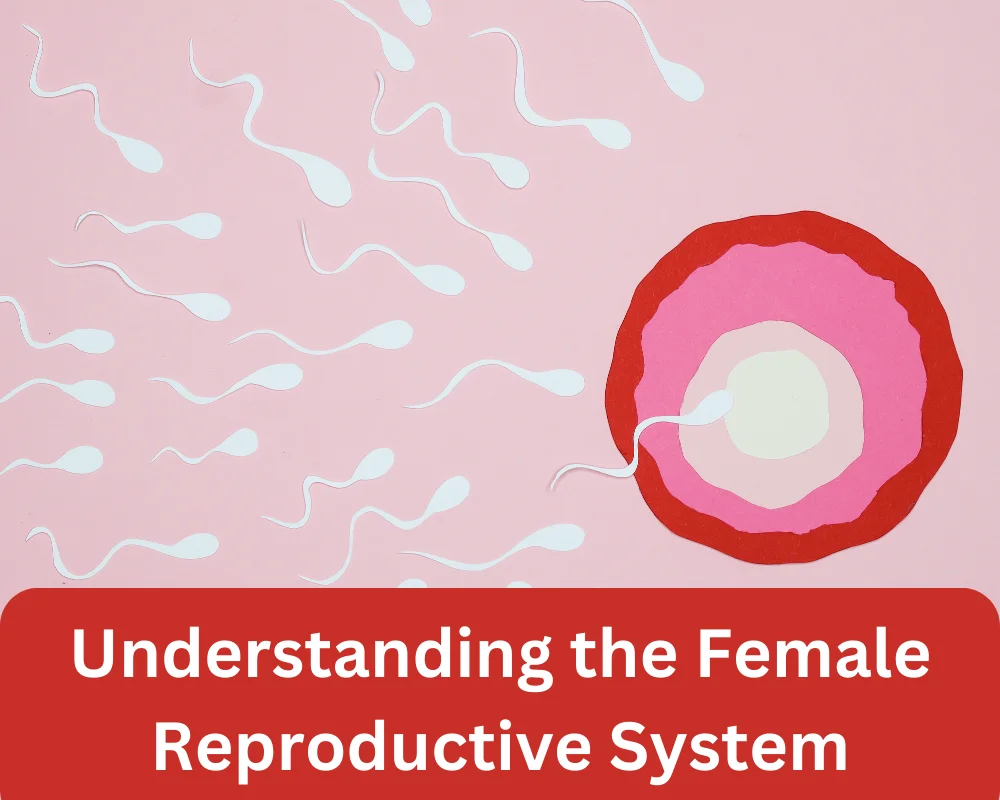Sperm survival within a female’s body is something many are curious about. Can food kill sperm in the female reproductive system? Let’s explore!
How food affects sperm has been studied by scientists and researchers for years. But, there isn’t much evidence linking certain foods to sperm elimination.
Maintaining a healthy diet is key to fertility and overall well-being. Eating nutrient-rich food like fruits, veggies, lean proteins, and grains helps. But, processed food, sugar, and unhealthy fats can have adverse effects on male and female fertility.
Is there a specific food that reduces sperm viability in the female body? Claims on this are largely anecdotal, with no concrete evidence. To get accurate info on reproductive health, consult healthcare pros or specialists.
Understanding the Female Reproductive System

The female reproductive system is like a complex network of organs. It includes the ovaries, fallopian tubes, uterus, and vagina. Each part has a key role in conception and pregnancy. Knowing how these organs work can help people with reproductive health.
The ovaries are on either side of the uterus. They produce eggs and hormones. Each month, one egg matures and leaves the ovary during ovulation. Then, it travels through the fallopian tubes, which link the ovaries to the uterus.
The uterus, or womb, is a place for the fertilized egg to develop into an embryo and then a fetus. It has strong walls with tissues that are ready for an egg to attach. The cervix, which is at the lower part of the uterus, opens during childbirth and menstruation. The vagina is the last part of the system. It’s a birth canal and for sex.
Every woman’s reproductive system is special. Things like hormones, structure, genes, and health can affect fertility. To keep this system healthy, people should eat right, exercise, manage stress, and get medical care.
Studies show that pH levels in the vagina and cervical mucus play a role in sperm’s ability to live. Understanding the female reproductive system helps people make decisions about family planning, contraception, and fertility. By understanding this complex system, people worldwide can have better reproductive health.
Factors Affecting Sperm Survival in the Female Body
Sperm survival in the female body depends on many things. These include cervical mucus consistency, immune response and acidity levels. The mucus must be thinner and more slippery for sperm to swim through. The immune system can detect sperm as intruders and attack them. Alkaline substances in semen can neutralize the acidic environment of the vagina, promoting sperm survival. Studies suggest frequent ejaculation may improve sperm quality by clearing out damaged or old sperm cells. This process is known as “sperm turnover.”
Foods that May Affect Sperm Survival
Foods can impact the survival of sperm. They either promote or hinder it, and fertility is affected. We should be aware of how our food choices can affect reproductive health. Here are five points to consider:
- Antioxidants: Eating fruits and vegetables with antioxidants like berries, spinach, and bell peppers can protect sperm from free radicals.
- Omega-3 Fatty Acids: Including sources such as fatty fish and flaxseeds can help improve sperm membrane fluidity and motility.
- Trans Fats: Avoid trans fats in processed foods, fast food, and margarine, as they have been associated with decreased sperm count and motility.
- Caffeine: Moderate caffeine intake is generally safe, but too much can affect sperm vitality.
- Alcohol: Excessive alcohol consumption has been linked to bad semen quality and quantity, so limit or avoid it.
These are general guidelines. Individual experiences may vary depending on many factors. Eating a balanced diet, exercising, and managing stress are all important for reproductive health.
Foods that May Support Sperm Survival
Certain foods can potentially support the survival of sperm in the female body. Walnuts, citrus fruits, leafy greens, fatty fish, pumpkin seeds, and dark chocolate are all known for their potential to improve sperm quality.
- Walnuts contain omega-3 fatty acids that may enhance sperm motility and morphology.
- Citrus fruits like oranges and grapefruits contain Vitamin C which can protect sperm from oxidative damage.
- Spinach and kale are packed with folate, associated with higher sperm concentrations.
- Salmon and mackerel are excellent sources of omega-3 fatty acids, which may improve sperm count.
- Pumpkin seeds contain zinc, vital for testosterone production and overall reproductive health.
- Dark chocolate is rich in antioxidants that may promote healthy blood flow to the reproductive organs.
Conclusion
Research has revealed that certain foods may potentially affect sperm health in the female body, but more studies are needed to fully understand these impacts. It’s important to note that diet alone cannot guarantee contraception or fertility.
To promote reproductive health, it’s essential to maintain a balanced, nutritious diet. Fruits and vegetables rich in antioxidants can help protect sperm from oxidative damage, while processed foods high in trans fats and sugars may do the opposite.
In addition to diet, regular exercise and stress management play an important role. Moderate physical activity supports optimal sperm production, while stress reduction techniques like meditation or yoga can positively influence reproductive function.
Each person’s response to dietary changes and lifestyle modifications is unique. Consulting with a healthcare professional or fertility specialist can provide personalized guidance and address any concerns. Through positive choices and expert advice, individuals can actively pursue reproductive well-being.
Frequently Asked Questions
Q: Can certain foods kill sperm in the female body?
A: While there is no definitive evidence to support the claim that specific foods can kill sperm in the female body, certain factors such as pH balance, cervical mucus quality, and overall reproductive health can affect sperm survival.
Q: Which foods are believed to decrease sperm viability?
A: Some people believe that acidic foods like lemon, vinegar, or cranberry juice might reduce sperm viability. However, more research is needed to establish a definitive link between these foods and their effects on sperm.
Q: Do spicy foods have an impact on sperm survival in the female body?
A: No scientific evidence suggests that spicy foods can kill sperm in the female body. Spicy foods might cause temporary discomfort or digestive issues, but they do not have any proven effects on sperm viability.
Q: Are there any foods that can increase the chances of killing sperm?
A: There is no scientific proof that any specific food can increase the chances of killing sperm in the female body. A healthy diet, overall reproductive health, and contraception methods are more crucial factors to consider.
Q: Can a diet affect fertility or decrease the chances of getting pregnant?
A: A well-balanced diet can positively impact fertility and increase the chances of getting pregnant. Nutrient-rich foods, regular exercise, and a healthy lifestyle contribute to overall reproductive health.
Q: Is there a recommended diet to boost fertility?
A: While no specific diet guarantees fertility, a well-rounded diet that includes fruits, vegetables, whole grains, lean proteins, and healthy fats can help optimize reproductive health. Consulting a healthcare professional or a fertility specialist is advisable for personalized advice.







